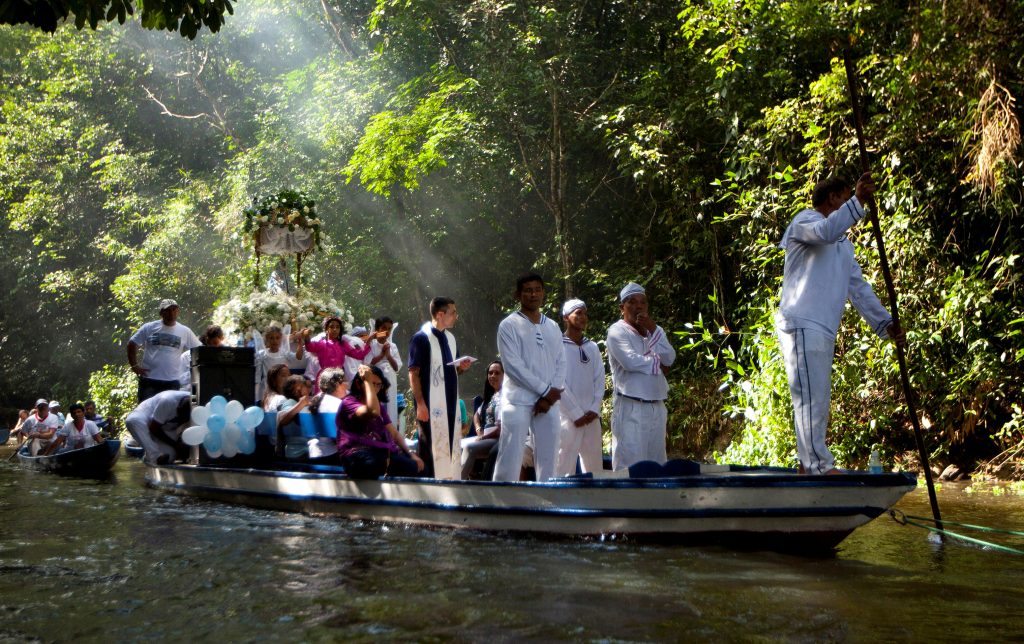ROME — For Pope Francis, this fall shapes up as a “Tale of Two Synods,” and the juxtaposition between the two events tells us a great deal, not only about the kind of Church he wants to lead, but also how messy it may be to get there.
The pontiff repeatedly has extolled the virtues of “synodality,” referring to broad consultation and shared decision-making in the Church, especially among the bishops. In effect, the twin synods now in the works illustrate both the promise and the peril of that approach.
In Rome, Francis will host his keenly anticipated Synod of Bishops on the Amazon Oct. 6-27, an event that’s been generating controversy well before the curtain goes up.
In Germany, the country’s bishops have confirmed plans for a two-year-long “synodal journey” involving clergy, religious, and laity.
A preliminary agenda features four highly sensitive subjects: the exercise of power and authority in the Church; sexual morality; the priesthood, including mandatory celibacy; and the role of women in the Church, including the possibility of opening more areas of ministry.
Cardinal Reinhard Marx of Munich, president of the German bishops’ conference, was in Rome this week to address what he called some “misunderstandings” after Vatican officials told the German prelates that a local assembly can’t resolve issues that affect the entire Church.
The bishops are set to vote on statutes for the synodal process later this month. Marx has said he sees no reason why the Germans can’t talk about whatever they want, even if, on matters regarding the universal Church, they can do no more than make recommendations to the pope.
Aside from charges of reviving a nationalist conception of the Church, the German undertaking is controversial among conservatives largely because the assumption is that it will end up adopting progressive positions. In reality, however, such an outcome might backfire, since it could paint Francis into a corner and force him to answer questions he’d prefer to leave open.
As for the pope’s Amazon synod, it’s stirring ferment for a whole slew of reasons, but the basic fault lines can be expressed in three points.
First, critics say it amounts to transforming the Catholic Church into a sort of secular NGO, or nongovernmental organization, distracting it from its core mission of saving souls rather than rainforests.
For bonus points, German Cardinal Walter Brandmüller has charged that for a synod of bishops to pronounce on ecology, economics, and politics amounts to “clericalism.” That’s hitting Francis where it hurts, given that clericalism is his bête noire, probably the quality above all others that brings out his most acerbic rhetoric.
Second, critics complain that the synod seems poised for an uncritical embrace of the agenda of secular environmentalists, without taking account of how today’s ecological movement often relies on philosophical and political assumptions at odds with orthodox Catholic teaching.
Third, because the synod for the Amazon is slated to discuss the “viri probati,” meaning tested married men who could be ordained to serve isolated rural communities as a solution to chronic priest shortages, critics worry about a slippery slope being created that would end in the de facto abolition of priestly celibacy.
Those objections are mushrooming in online discussion, and they’re sure to feature prominently in a cluster of protests and counter-events scheduled for Rome as the synod opens, prominently including a campaign of prayer and fasting to save the synod from “heresy and error.”
So, what does all this say about “synodality” under Francis?
To begin with, it says that this pope is willing to risk a great deal for it. Francis recently said that while he doesn’t want a schism and prays to avoid it, he’s not afraid of a schism either, and he clearly understands the depth of concern in some quarters the Amazon summit is generating.
Nonetheless, the pope obviously wants the authority of a synod, meaning the perception of consensus, behind his campaign to save the Amazon and to defend the roughly 4 million people scattered across some 400 indigenous communities who live there.
The state of things also tells us that the definition and limits of “synodality” remain a work in progress, since it seems what the Germans are doing isn’t quite what Francis has in mind, though it’s unclear what steps Francis might be prepared to take to rein them in should they press ahead in defiance of Vatican cautions.
In other words, it’s not yet clear whether this “Tale of Two Synods” will be the best of times for Francis or the worst. Like the Dickens original, however, it does seem destined to be a gripping story, no matter how it ends.

